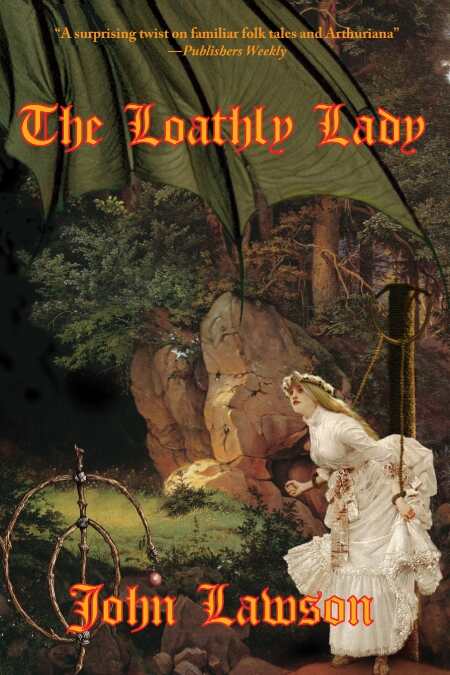The Loathly Lady
This sword-and-sorcery fantasy contains a few spicy differences from the usual fare.
John Lawson’s The Loathly Lady inhabits that familiar terrain of the sword-and-sorcery fantasy. True to its hallowed tradition, this world is rife with stock elements: dragons and damsels, jousting and carousing, magic, and intrigue. When the novel opens, unrest simmers on the borders of a fragmented kingdom while knights jockey for influence in the palace halls. Perhaps it’s unfair to expect originality in a genre that has been saturated since J.R.R. Tolkien—yet with a few clever tweaks to the formula, Lawson manages, at times, to transcend the genre’s limitations in as many ways as he falls victim to them.
A few clever innovations keep the story flowing forward at a good clip. For one, the main character, Brandywine, is not the usual underdog hero—he’s a womanizer and a drunk. “With the way you rut,” a friend observes, “It is nae wonder that the bloodlines of our knighthood are so watered down.” Meanwhile, the obligatory dragon doesn’t just attack peasants and destroy villages, it casts a spell that “finds your deepest suspicions and brings them to the light, while veiling the truth”—so that no one believes there is any dragon at all! The kingdom itself is not unified against a common foe but balkanized. And Lawson throws in an annual bacchanal complete with endless orgies, nubile lassies, and plenty of grog.
As for the pitfalls of world-building, the novel’s many unfamiliar names for places, people, religions, and ceremonies tend to start looking alike. Is “Daga Daina” the big orgy or was that the local religious leader? But that’s no real obstacle for a fantasy novel—worlds deserve their own names and lovers of the genre are usually up to the work. If there is a weakness in The Loathly Lady, it is that certain key plot points are too uncomplicated and predictable. Rather than spoil any surprise, suffice it to say that the solution to at least one of the book’s mysteries is clear and obvious the moment it is introduced. And a riddle, when its quested-after answer comes to light, can only be described as a “real groaner.” The journeys for these already-known answers can frustrate rather than delight. Still, these plotting missteps can be ignored with the fantasyvore’s signature talent; the ability to suspend disbelief to (almost) heroic lengths.
Lawson’s first novel is perfect for mature YA readers and adults who have a tolerance for sexual situations and language. A true descendant of the fantasy heritage and eminently readable, this novel author builds an immersive world.
Reviewed by
Leia Menlove
Disclosure: This article is not an endorsement, but a review. The publisher of this book provided free copies of the book and paid a small fee to have their book reviewed by a professional reviewer. Foreword Reviews and Clarion Reviews make no guarantee that the publisher will receive a positive review. Foreword Magazine, Inc. is disclosing this in accordance with the Federal Trade Commission’s 16 CFR, Part 255.

